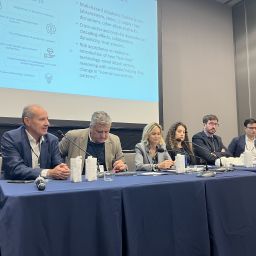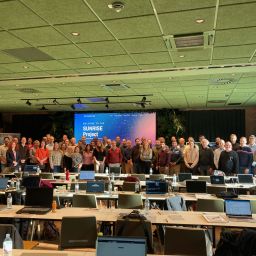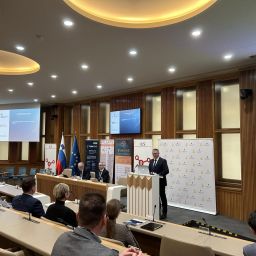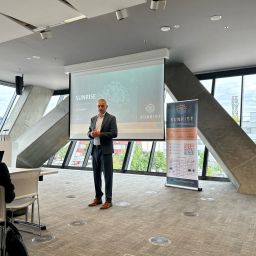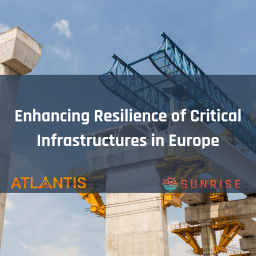
SUNRISE CRITICAL INFRASTRUCTURE SERIES
Cooperation among critical infrastructure entities is crucial for ensuring the resilience and security of essential services such as energy, water, transportation, telecommunications, and healthcare. By working together and sharing information and resources, these entities can effectively identify and address vulnerabilities, threats, and potential disruptions.
At the University Medical Center Ljubljana, we experienced this first hand during the COVID-19 pandemic. We suddenly realized our dependence on other sectors we had previously taken for granted. This experience prompted us to join the SUNRISE project as an essential healthcare provider and share our insights with other sectors. Cooperation among essential service providers is organized through the Institute of Corporate Security, which acts as an “umbrella” facilitating the regular exchange of views and knowledge sharing.
One of the goals of the SUNRISE project is to provide a strategy for collaboration among critical infrastructure sectors and stakeholders, which can help in various ways, including:
- Information Sharing: Sharing threat intelligence, best practices, and lessons learned among critical infrastructure entities can enhance situational awareness and improve incident response capabilities.
- Coordination: Coordinated planning and response efforts can ensure a unified and effective response to incidents that impact multiple sectors or regions.
- Resilience Planning: By collaborating on resilience planning and risk management strategies, critical infrastructure entities can better prepare for and mitigate the impact of disruptive events.
- Cross-Sector Partnerships: Building partnerships across different critical infrastructure sectors enables a more holistic approach to security and resilience, considering interdependencies and cascading effects.
- Training and Exercises: Conducting joint training exercises and simulations can help improve coordination, communication, and response capabilities among critical infrastructure entities.
Another important issue we are addressing is cross-border cooperation. During crises, resources within a country’s borders may not suffice, necessitating the aid of neighbouring facilities. Currently, cross-border cooperation is highly bureaucratic and time-consuming to organize.
Therefore, fostering a culture of cooperation and collaboration among critical infrastructure entities is essential for enhancing overall resilience and security in today’s interconnected and complex environment.
The tools developed during the project will facilitate crisis management and address future challenges.
Written by: Matjaž Tavčar, Project Manager, University Medical Centre Ljubljana











